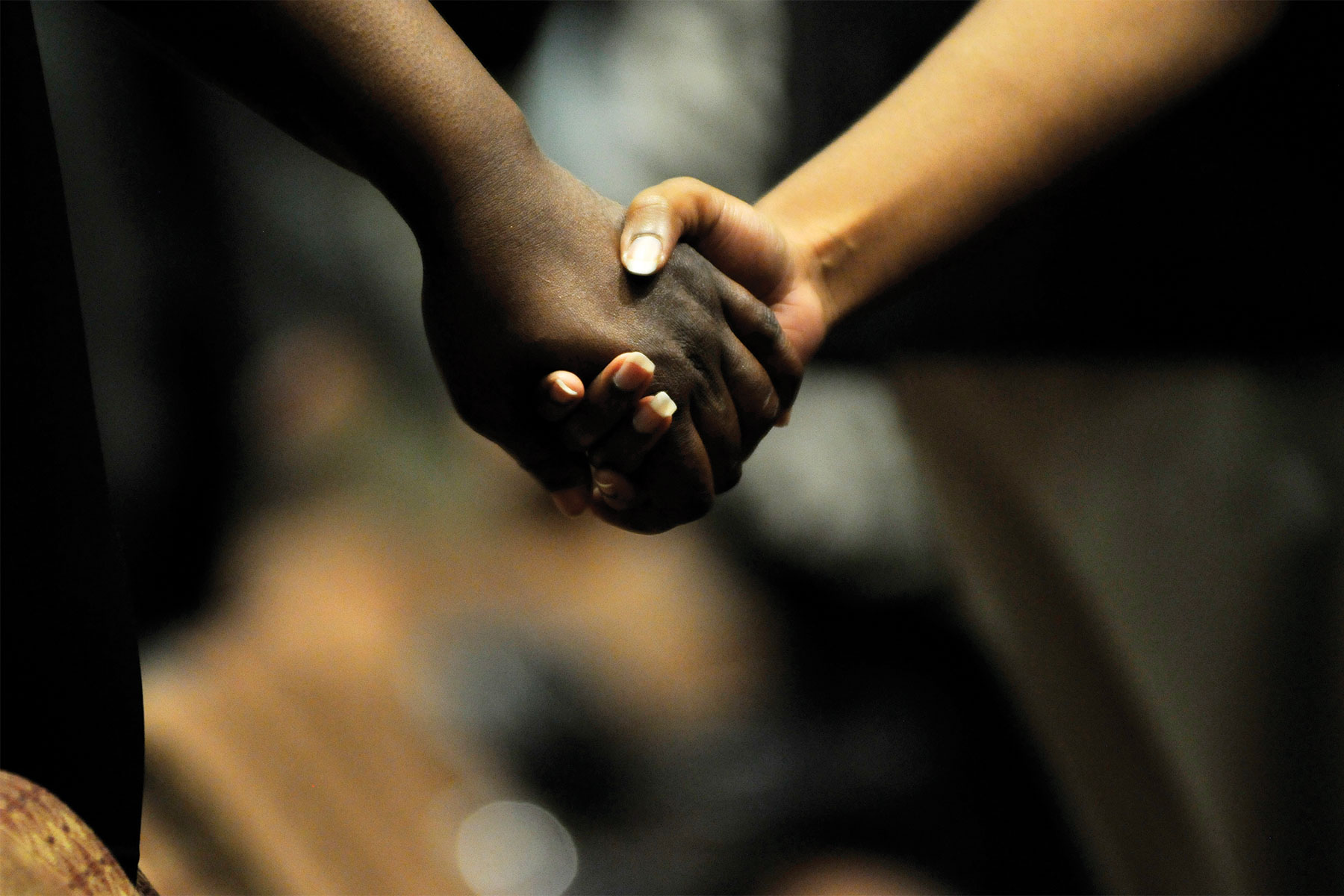Racial Reconciliation Series: Can We All Get Along?

As part of the release of fall 2017 edition of Contact Magazine, the Office Hours Faculty Blog is proud to present the concluding article of a 6-week series on racial reconciliation featuring articles written by experts, scholars and ministry leaders from Gordon-Conwell. The weekly release each Friday has included articles A Conversation with Dr. Emmett G. Price III, Beyond Colorblind, Ministering to Families in the Urban Context, How Do We Learn to Love Our Neighbor, Racial Reconciliation: My Personal Experience and Can We All Get Along.
Dr. Jacqueline T. Dyer
Assistant Professor of Counseling, Director of Counseling and Academic Support Initiatives and teaches at the seminary’s Boston Campus.
I remember that question, “Can we all get along?” asked by Rodney King, the African American man who was savagely beaten by four police officers after a car chase. The officers were eventually charged for their use of force. Despite video evidence, three of the four white policemen were acquitted. The subsequent anger and violence that erupted lasted for days. At some point during the course of the Los Angeles riots, Rodney King pleaded for peace.
His question is a complicated one to ask, especially in connection to racial reconciliation in the United States. The hurt borne of a history of brutal slavery and ongoing inequities remains a festering wound under an uneven surface. When the hurt place is touched—or squeezed, as happened after that fateful verdict in 1992—a lot of mess comes oozing out. The mess does not reveal any new issues. It only reveals what is often veiled by efforts to minimize or hide some grim realities.
Race issues are not easily addressed on a good day in the United States. They are frequently convoluted by the fact that we are marred by sin and all that sin relentlessly demands. For instance, sin demands that we maintain prideful immobility if faced with fixing a wrong we do not feel we created. We experience fatigue at the thought of having to extend ourselves “one more time.” However, we who are people of the Triune God do not have the luxury of maintaining such resistance for long. Jesus shreds that resistance by giving us the mandate to be reconciled in all our relationships, both vertically, with God, and horizontally, with others. Matthew 5:23-24 reminds us that we cannot come to God with our offerings without being reconciled, even if the issue originates with our neighbor. We cannot claim to be too tired to improve our relationships. The responsibility to act rests with us.
So what gets in our way? It could be said that we “get in our own way.” We tend to want what we want, the way we want it. This often includes the choice of which relationships we reconcile, and who we call neighbor. Conversely that means deciding who does not receive our affections. Such preferences originate from our limitations. Yet all indicators of our faith tell us picking neighbors is not an option.
Christians have the ultimate manual, replete with information for how to behave and interact, that guides our lives. When it comes to how we learn to love our neighbors, the issue is not the absence of knowledge. The issue is our starting point and how we proceed from there. I believe we first need to recognize the true Source of love in our lives. We learn to love others as we experience God’s love for us.
Can we all get along? Our Love connection teaches us that we cannot remain passive or disaffected by our neighbors, nor about our interactions with them. God’s love moves us beyond ourselves toward a strength and courage gained through humility in Christ. We first learn to love from God; and God enables us to extend love to others. This is how we learn to truly love all our neighbors.
Dr. Jacqueline T. Dyer is Assistant Professor of Counseling, Director of Counseling and Academic Support Initiatives and teaches at the seminary’s Boston Campus. She holds a Ph.D. from the Boston College Graduate School of Social Work, and an M.A in Urban Ministry Leadership from Gordon-Conwell. She formerly was Assistant Professor and Field Coordinator at Eastern Nazarene College, and an Adjunct Professor at Simmons, Salem State and Wheelock Colleges of Social Work. She has served in clinical and supervisory positions at Family Intervention Team, Abundant Life Counseling Center, Roxbury Preparatory and Edward Brooke Charter Schools, Cambridge Public Schools and Massachusetts Behavioral Health Partnership. In addition, she is on the leadership team for Clergy Women United of the Black Ministerial Alliance.
Additional Resources
- Read the full Fall 2017 edition of Contact Magazine.
- Find more information on Gordon-Conwell’s new Institute for the Study of the Black Christian Experience.
- Read alumna Sarah Shin’s discussion of ethnic identity.
- Read our interview with Dr. Emmett G. Price III on racism and the church.
- Read Dr. Virginia Ward’s discussion of urban family ministry.
- Read Prof. Quonekuia Day’s article on loving our neighbor.
- Read about Prof. Dean Borgman’s personal experience with racial reconciliation.